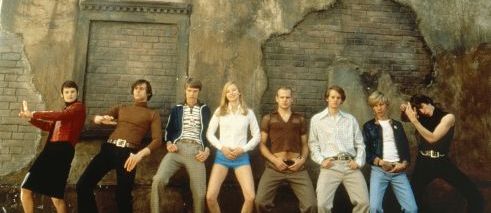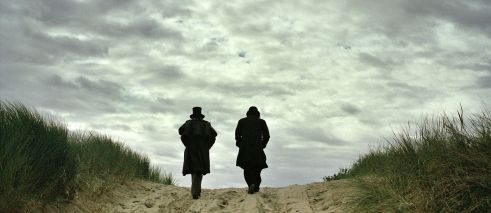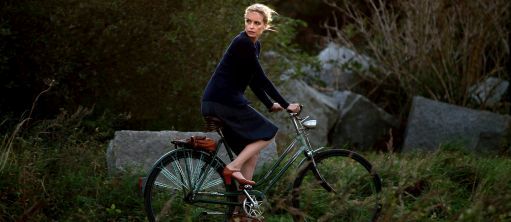German Films @ Terenure Library
The Goethe-Institut has teamed up with Terenure Library again to show a selection on German films from January to March 2020.

Wednesday, 22 January 2020, 6 pm
Sonnenallee / Sun Alley
Dir.: Leander Hausmann, colour, 101 min., Germany 1999
A "mufta" is a multifunctional table, a "Minetta" is a radio, mopeds are called "Swallows" and "Asthmakraut Halle" (a special asthma medication) is the only recreational drug available. The Soviet Union is big brother; the rest of the world is the enemy of the people, and the Berlin Wall is actually a bulwark againt fascists. This is the German Democratic Republic, the land where Michael lives. He wears bell-bottoms and a home-printed Rock & Pop T-shirt. And the street he lives on wends most of its length through West-Berlin, with just its tail in the East. The apartment is cramped; the neighbour works for the secret police; there′s an uncle from the West to smuggle in pantyhose; and a West German passport which causes his mother to age before his very eyes. But Micha is focused on his goal: doing whatever it takes to win the heart of the prettiest girl at school. It all happened a very long time ago, but if Micha doesn′t tell the story now, we′ll never know what it was like, back then in the seventies, in the shadow of the Berlin Wall, at the back end of the Sun Alley.
In "Sun Alley" director Leander Haussmann and screenwriter Thomas Brussig take us on a trip through East Germany. It′s a heartfelt and sympathetic look - the re-discovery of a world that has long since ceased to exist.

Wednesday, 12 February 2020, 6 pm
Der junge Karl Marx / The Young Karl Marx
Dir.: Raoul Peck, colour, 118 min., Germany 2017
1844. Karl Marx is 26 years old and living with his wife Jenny in exile in Paris. He is habitually in debt and plagued by existential anxieties. When he first meets the slightly younger factory owner’s son Friedrich Engels he dismisses him as a dandy. But Engels, who has just published a study on the miserable impoverishment of the English proletariat, has long since begun to distance himself from his own class. The two like-minded men become friends and soon inspire each other to write texts in which they seek to provide a theoretical foundation for the revolution they believe must come. Their goal is no longer to merely interpret the world, but to change it. Fundamentally. Resistance on the part of conservative forces and internal power struggles within the political Left only serve to spur them on.
Raoul Peck describes the origins of the international Socialist movement, the emergence of the Communist League and its founding document, the Communist Manifesto. At the same time, the film paints a portrait of two impetuous young men who passionately believe in the vision of a humane society and the revolutionary power of the abused and oppressed.

Wednesday, 11 March 2020, 6 pm
Barbara
Dir.: Christian Petzold, colour 105 min., Germany 2012
Summer in the GDR in 1980. Barbara, a doctor, has submitted an application to emigrate to the West. She is punished by being posted away from the capital to a hospital in a small town. Jörg, her lover in the West, is busy planning her escape via the Baltic Sea. It’s a waiting game for Barbara. Her new flat, the neighbours, summer and the countryside no longer hold any charms for her. Although she is attentive to her young patients in the department for paediatric surgery under her new boss, André, she is deliberately cool to her colleagues. Her life, she thinks, will begin later.
André confuses her. First there’s his unshakable faith in her professional abilities, then there’s way he cares, and his winning smile. What makes him cover up for her when she helps Stella, a young runaway? Is he spying on her? Is he in love? Barbara begins to lose her grip on herself, her plans and her heart. The day of her planned escape approaches.
Admission free, no booking required
Presented by Terenure Library and the Goethe-Institut Irland.